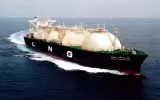Europe’s shift from LNG to pipeline; Is Tehran creating opportunities or burning opportunities?

According to the exclusive report of Energy Press; As a result of the Russia-Ukraine war, Europe faced an unprecedented energy crisis, and the countries of the region, facing the risk of gas supply disruptions, immediately looked for alternatives. One of these solutions was a sharp increase in imports of liquefied natural gas (LNG) from the United States. Responding quickly to increased demand, American suppliers have increased LNG cargo exports to the European market, partially filling the gap caused by reduced Russian pipeline gas supplies. But over time, Europe seems to be changing its strategy, turning its attention to traditional and apparently more sustainable sources – pipeline gas.
Amid the conflict in Ukraine and sanctions against Russia, Europe actively bought LNG in 2022-2022, temporarily reducing its dependence on Russian pipeline gas. However, the latest report of the Gas Exporting Countries Forum (GECF) shows that this trend is likely to be short-lived. In July 2024, LNG purchases in Europe fell 26% from the previous month to a total of 6.34 million tonnes, the lowest since September 2021.
Several factors contributed to this decline, including a decline in overall gas demand, the accumulation of significant reserves in European storage facilities, and a steady or even increased supply of pipeline gas. In addition, a sharp increase in the price gap between spot LNG prices in the Asia-Pacific region and Europe has also contributed. Asia, with its growing economy and energy needs, offered more favorable conditions for LNG suppliers, leading to a significant rerouting of LNG volumes from Europe to Asian markets.
Europe’s return to pipeline gas: the end of the LNG era?
As LNG imports decline, Europe has once again increased its pipeline gas purchases. Data from January to July 2024 show that European countries imported 93 billion cubic meters of gas, which is 5% more than the same period in 2023. An increase in supply has been recorded from three key sources: Russia, Norway and Azerbaijan.
Russia, despite sanctions and political tensions, remains an important supplier of gas to Europe. In the first seven months of 2024, Russian gas exports through the Turkish Stream pipeline increased by 44% and through the Ukrainian route by 24%. These data show that despite Europe’s efforts to diversify its supply, Russian gas remains an important element in the continent’s energy balance.
Also, Norway, one of the most stable and reliable suppliers of gas to Europe, also increased its delivery and added 1.4 billion cubic meters of gas to its exports. The Republic of Azerbaijan, with its strategic location and the Southern Gas Corridor project, increased its exports by 0.7 billion cubic meters and strengthened its position in the European energy market.
The answer to the question of why Europe is returning to pipeline gas is still complex and does not have a straightforward answer. On the one hand, pipeline gas offers a more stable supply and is generally cheaper than LNG, especially when LNG prices are highly volatile at the moment. Pipeline delivery is not dependent on global sea lanes and associated infrastructure, reducing risks associated with shipping and logistics.
On the other hand, the increase in pipeline gas supply may indicate that European countries recognize the limitations associated with LNG imports. Despite its apparent advantages in times of crisis, LNG has disadvantages, including high infrastructure costs for receiving and regasification, as well as dependence on global demand and competition with Asian markets.
The political aspect is also significant in this matter. It is likely that the European Union, in pursuit of energy independence policy, will continue to support the diversity of suppliers, but will be more selective in choosing partners. In this context, exporting gas from Russia and Azerbaijan, as well as strengthening the position of Norway, seems to be an attempt to create a more stable and balanced energy supply system.
Also, the question becomes, what will be the future of Europe? At this point, one thing is clear; Europe is not ready to completely abandon pipeline gas in favor of LNG. Moreover, current trends suggest that pipeline gas may once again occupy a key position in the continent’s energy balance. However, this does not mean that LNG is completely abandoned. Instead, it will become part of a more flexible and diversified supply system that includes pipeline gas, LNG and renewable energy sources.
Tags:LNG
- Comments sent by you will be published after approval by site administrators.
- Comments that contain slander will not be published.
- Comments that are not in Persian or not related to the news will not be published.

Comments
Total comments : 0 Awaiting review : 0 Date: 0